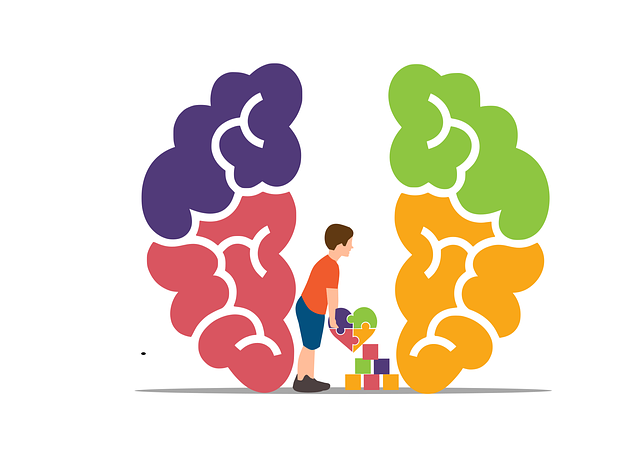Mental wellness coaching, especially tailored for individuals with the Lafayette Adjustment Disorder (LADT), is a powerful tool in today's fast-paced world. Coaches employing evidence-based practices and personalized strategies help clients manage symptoms, build resilience, and integrate mental health education. Key techniques include Cognitive Behavioral Therapy (CBT) to challenge negative thought patterns, Social Skills Training, Mindfulness Meditation, and Stress Management. Success is measured through client outcomes, program effectiveness, and satisfaction, utilizing data-driven insights for continuous improvement in LADT coaching programs.
Mental wellness coaching programs are gaining prominence as powerful tools for personal growth. This article delves into the development of such programs, focusing on strategies to improve mental health and well-being. We explore the significance of personalized approaches, highlighting the importance of understanding Lafayette Adjustment Disorder Therapy techniques for effective coaching. By integrating evidence-based methods, coaches can design tailored modules, offering measurable outcomes and continuous improvement. Through these strategies, individuals can navigate their mental wellness journeys with increased confidence and resilience.
- Understanding Mental Health and Wellness Coaching
- Identifying the Need for Personalized Programs
- Designing Effective Lafayette Adjustment Disorder Therapy Modules
- Incorporating Evidence-Based Techniques in Coaching
- Measuring Success and Continuous Improvement Strategies
Understanding Mental Health and Wellness Coaching

Mental health and wellness coaching is a growing field that focuses on empowering individuals to take charge of their mental well-being. Unlike traditional therapy sessions, coaching provides a more collaborative and goal-oriented approach. Coaches work with clients to identify areas of improvement, set achievable objectives, and develop personalized strategies for managing stress, anxiety, or other mental health challenges. This process often involves teaching practical skills, such as mindfulness techniques and effective coping mechanisms, tailored to each person’s unique needs.
In the context of Lafayette Adjustment Disorder Therapy, coaches play a vital role in supporting individuals dealing with specific disorders. They help clients navigate their symptoms, enhance self-awareness, and build resilience. By integrating evidence-based practices and Emotional Well-being Promotion Techniques, coaches contribute to the development of Mental Health Education Programs Design, fostering an environment where people can learn, grow, and thrive. Additionally, the creation of Mental Wellness Podcast Series Production can further extend this support by providing accessible resources and sharing expert insights on various aspects of mental wellness.
Identifying the Need for Personalized Programs

In today’s fast-paced world, mental wellness is a cornerstone of overall well-being, with personalized coaching programs becoming increasingly vital. The need for tailored interventions is evident in addressing diverse challenges like the Lafayette Adjustment Disorder, which requires unique strategies beyond one-size-fits-all solutions. Every individual has distinct needs and circumstances, making personalized therapy effective for managing stress, conflict resolution techniques, and fostering resilience.
Traditional approaches often overlook this variability, leading to limited success rates. Mental health policy analysis and advocacy have highlighted the importance of customized programs that consider cultural, social, and personal factors. By tailoring coaching to specific client needs, practitioners can significantly enhance treatment outcomes, ensuring individuals receive the support they need for lasting mental wellness.
Designing Effective Lafayette Adjustment Disorder Therapy Modules

Designing effective Lafayette Adjustment Disorder Therapy (LADT) modules requires a strategic approach that combines evidence-based practices with tailored interventions. The first step involves assessing the unique needs of individuals struggling with this specific disorder, considering their personal histories and triggers. This personalized touch is key to fostering engagement and ensuring the therapy aligns with their lived experiences. Incorporating techniques from cognitive-behavioral therapy (CBT) can help individuals challenge negative thought patterns and develop healthier coping mechanisms.
Moreover, integrating risk management planning for mental health professionals is vital. By teaching clients strategies to anticipate and mitigate potential triggers, LADT enhances their ability to maintain stability. Encouraging positive thinking and self-care routine development for better mental health are also integral components. These practices empower individuals to proactively manage symptoms, promote resilience, and cultivate a sense of balance in their lives.
Incorporating Evidence-Based Techniques in Coaching

Incorporating evidence-based techniques into coaching programs for mental wellness is a pivotal step toward effective and sustainable support. Techniques such as Cognitive Behavioral Therapy (CBT) have been extensively researched and proven to be highly successful in treating various mental health concerns, including Lafayette Adjustment Disorder. By integrating these therapeutic approaches, coaches can equip individuals with valuable tools to manage their conditions. For instance, CBT helps clients identify and challenge negative thought patterns, replacing them with healthier alternatives, which is particularly beneficial for those dealing with adjustment disorders.
The integration of Social Skills Training, Mindfulness Meditation, and Stress Management techniques further enhances the coaching experience. These practices foster a sense of calm, improve emotional regulation, and enhance social interactions, all of which are crucial aspects of recovery and overall well-being. Coaches can guide clients through mindfulness exercises to reduce stress levels and promote a more positive mindset, complementing the structured approach of CBT. Such an inclusive methodology ensures that coaching programs cater to a holistic range of mental wellness needs.
Measuring Success and Continuous Improvement Strategies

Measuring success in mental wellness coaching programs is a multifaceted process. It involves not only tracking client outcomes but also gauging program effectiveness and participant satisfaction. By utilizing standardized assessment tools and qualitative feedback mechanisms, coaches can identify areas of improvement and tailor interventions to address specific needs, such as Lafayette Adjustment Disorder Therapy. This dynamic approach ensures that the program remains responsive to evolving mental health landscapes, including stress management, depression prevention, and burnout prevention strategies.
Continuous improvement necessitates regular review and refinement. Data-driven insights from client outcomes, combined with coach reflections and participant feedback, offer a comprehensive view of program performance. Integrating these perspectives enables coaches to refine their methodologies, enhance curriculum content, and foster more impactful coaching relationships. Ultimately, this iterative process aims to optimize mental wellness coaching programs, ensuring they remain effective and relevant in meeting the diverse needs of individuals seeking support.
Mental wellness coaching programs, tailored through an understanding of Lafayette Adjustment Disorder Therapy techniques and personalized approaches, offer transformative support. By incorporating evidence-based practices and focusing on continuous improvement, these programs can effectively address diverse mental health needs. Measuring success involves tracking client progress and adapting strategies accordingly, ensuring a dynamic and impactful coaching journey.












